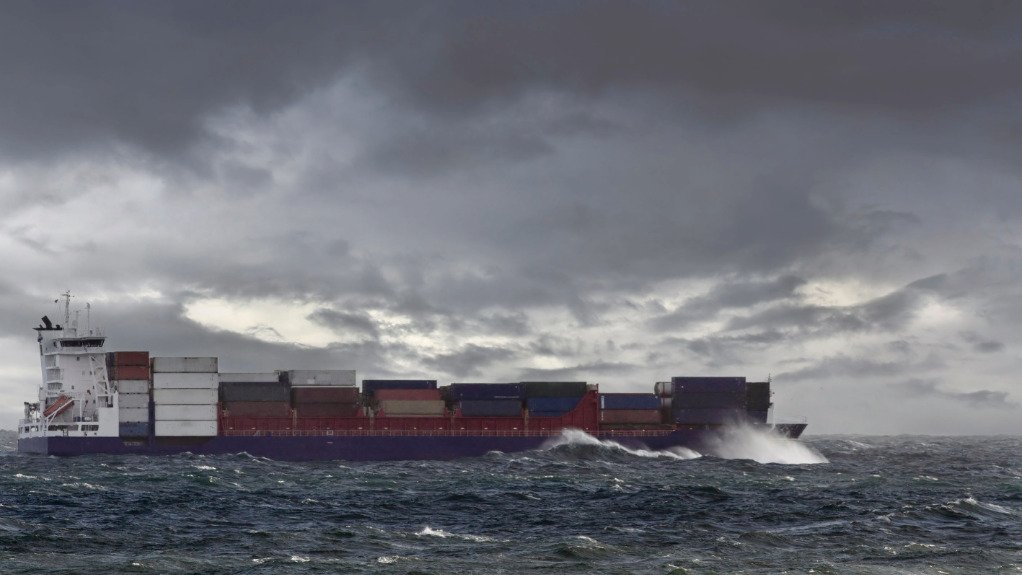Tharisa invests £1.5m in JV to develop low-emission natural gas catalysers for shipping industry
Newly formed joint venture (JV) Methanox has secured a £1.5-million investment from platinum group metals (PGMs) and chrome concentrates producer Tharisa towards accelerating methane emissions reductions from natural-gas-powered ships.
The Methanox JV is the brainchild of London’s Queen Mary University renewable energy senior lecturer Dr Patrick Cullen and chemical engineering programme director Dr Paul Balcombe, along with University College London inorganic chemistry Professor Andrew Beale and London-based climate technology laboratory Prosemino.
With the establishment of the JV, Cullen will be taking a leave of absence from his university position to fill the role of Methanox CEO, while Balcombe and Beale will act as consultants and directors.
Unburned methane emissions, particularly at lower engine loads, can substantially diminish the environmental advantages of using natural gas over traditional marine fuels, Methanox explained.
However, recent research into these methane emissions, including a wide-ranging 2022 study by Balcombe showed that methane slippage from natural gas-powered vessels is much more significant than originally anticipated.
Methanox aims to fill this gap, made all the more pressing owing to increasing scrutiny from regulators and the fact that there is no commercialised product on the market addressing this issue.
“We think catalysis has a key role to play in decarbonisation of shipping,” Beale says.
As such, the JV aims to establish itself as a key innovator in maritime emissions mitigation by developing new catalytic converters.
“Methane is up to 120 times more potent than CO2 in terms of global warming. Reducing methane emissions is vital to have any chance of meeting our global climate targets,” Balcombe says.
The outsized effect of methane on global warming means that Methanox will look to address 0.24% of global CO2 equivalent emissions on up to 2 600 ships. Technology development will be taking place at the UK Catalysis Hub in the Research Complex at Harwell, Oxford.
The latest funding commitment from Tharisa comes as the EU prepares to ramp up regulations targeting methane emissions from shipping.
“With emissions trading schemes such as EU Emissions Trading System and others on the horizon, shipowners will have to either reduce their methane emissions or pay for their emissions.
“Our goal is to develop a commercial technology, installed with minimum disruption to ship availability, that not only reduces methane emissions, but also helps customers avoid these penalties,” Cullen says.
With the funding committed, on site vessel testing of the Methanox-designed catalytic converters could be deployed as soon as the second half of this year.
“We are committed to reducing the impact on the climate of our business. As a large PGM producer, we see this opportunity as one of the many ways we can support these efforts that in time utilises metal from our operations,” Tharisa corporate finance executive Andrew Henwood explains.
“At Prosemino, we specialise in taking cutting-edge science out of the lab and into the world. Methanox is a perfect example [of] bringing together top-tier catalysis research with entrepreneurial drive to solve an urgent emissions challenge in shipping,” Prosemino venture building director Dr Gyen Ming Angel adds.
With Tharisa’s and Prosemino’s support and the expertise of its founders, Methanox believes it is well-positioned to drive meaningful change in an industry under increasing pressure to address its environmental footprint and will allow natural-gas-powered ships to comply with methane regulations.
Article Enquiry
Email Article
Save Article
Feedback
To advertise email advertising@creamermedia.co.za or click here
Announcements
What's On
Subscribe to improve your user experience...
Option 1 (equivalent of R125 a month):
Receive a weekly copy of Creamer Media's Engineering News & Mining Weekly magazine
(print copy for those in South Africa and e-magazine for those outside of South Africa)
Receive daily email newsletters
Access to full search results
Access archive of magazine back copies
Access to Projects in Progress
Access to ONE Research Report of your choice in PDF format
Option 2 (equivalent of R375 a month):
All benefits from Option 1
PLUS
Access to Creamer Media's Research Channel Africa for ALL Research Reports, in PDF format, on various industrial and mining sectors
including Electricity; Water; Energy Transition; Hydrogen; Roads, Rail and Ports; Coal; Gold; Platinum; Battery Metals; etc.
Already a subscriber?
Forgotten your password?
Receive weekly copy of Creamer Media's Engineering News & Mining Weekly magazine (print copy for those in South Africa and e-magazine for those outside of South Africa)
➕
Recieve daily email newsletters
➕
Access to full search results
➕
Access archive of magazine back copies
➕
Access to Projects in Progress
➕
Access to ONE Research Report of your choice in PDF format
RESEARCH CHANNEL AFRICA
R4500 (equivalent of R375 a month)
SUBSCRIBEAll benefits from Option 1
➕
Access to Creamer Media's Research Channel Africa for ALL Research Reports on various industrial and mining sectors, in PDF format, including on:
Electricity
➕
Water
➕
Energy Transition
➕
Hydrogen
➕
Roads, Rail and Ports
➕
Coal
➕
Gold
➕
Platinum
➕
Battery Metals
➕
etc.
Receive all benefits from Option 1 or Option 2 delivered to numerous people at your company
➕
Multiple User names and Passwords for simultaneous log-ins
➕
Intranet integration access to all in your organisation



















